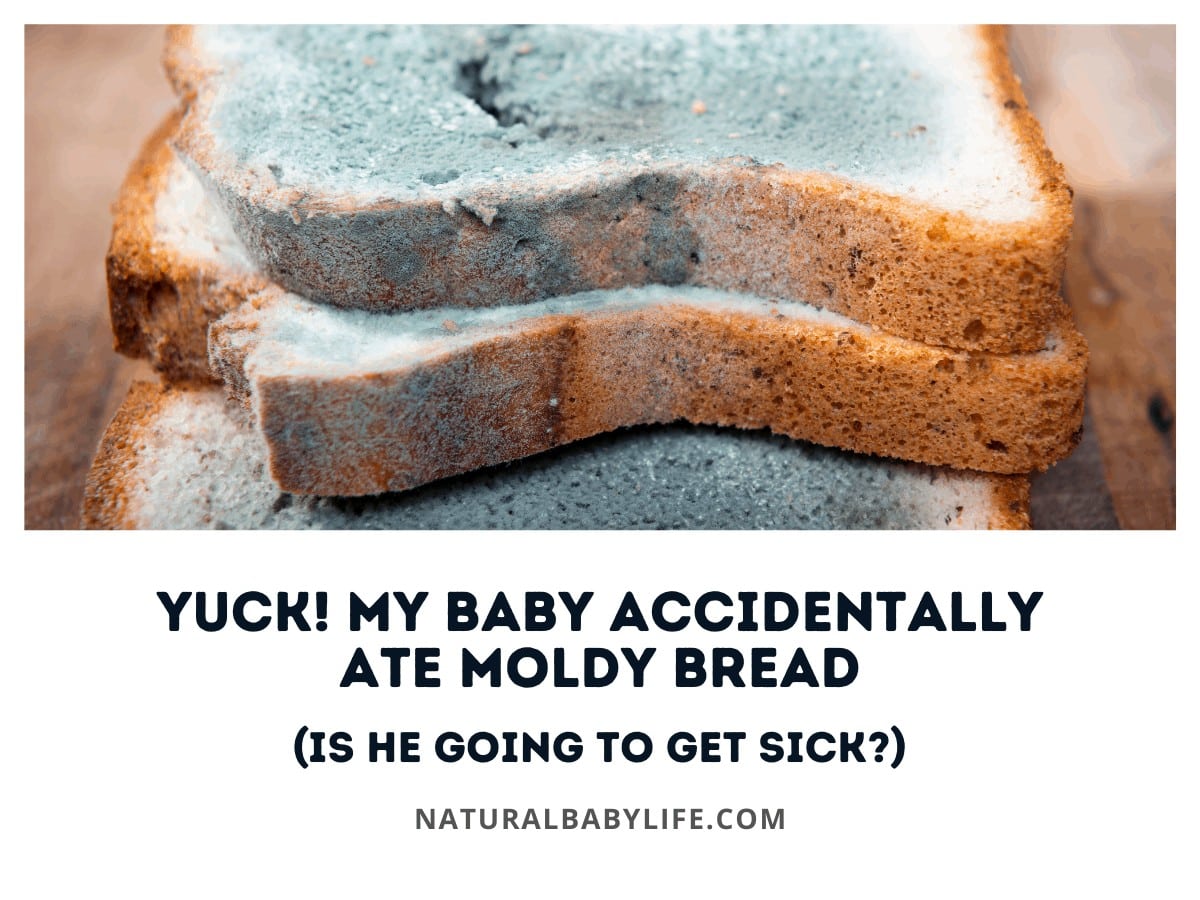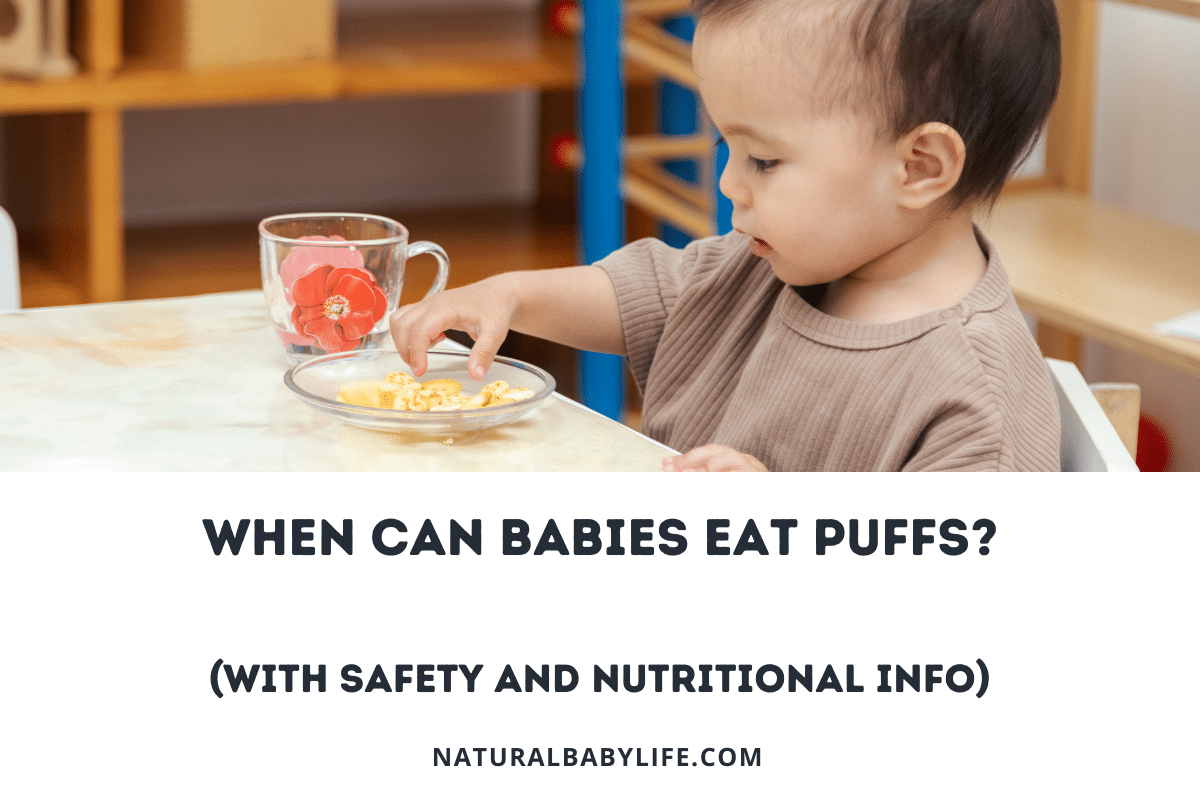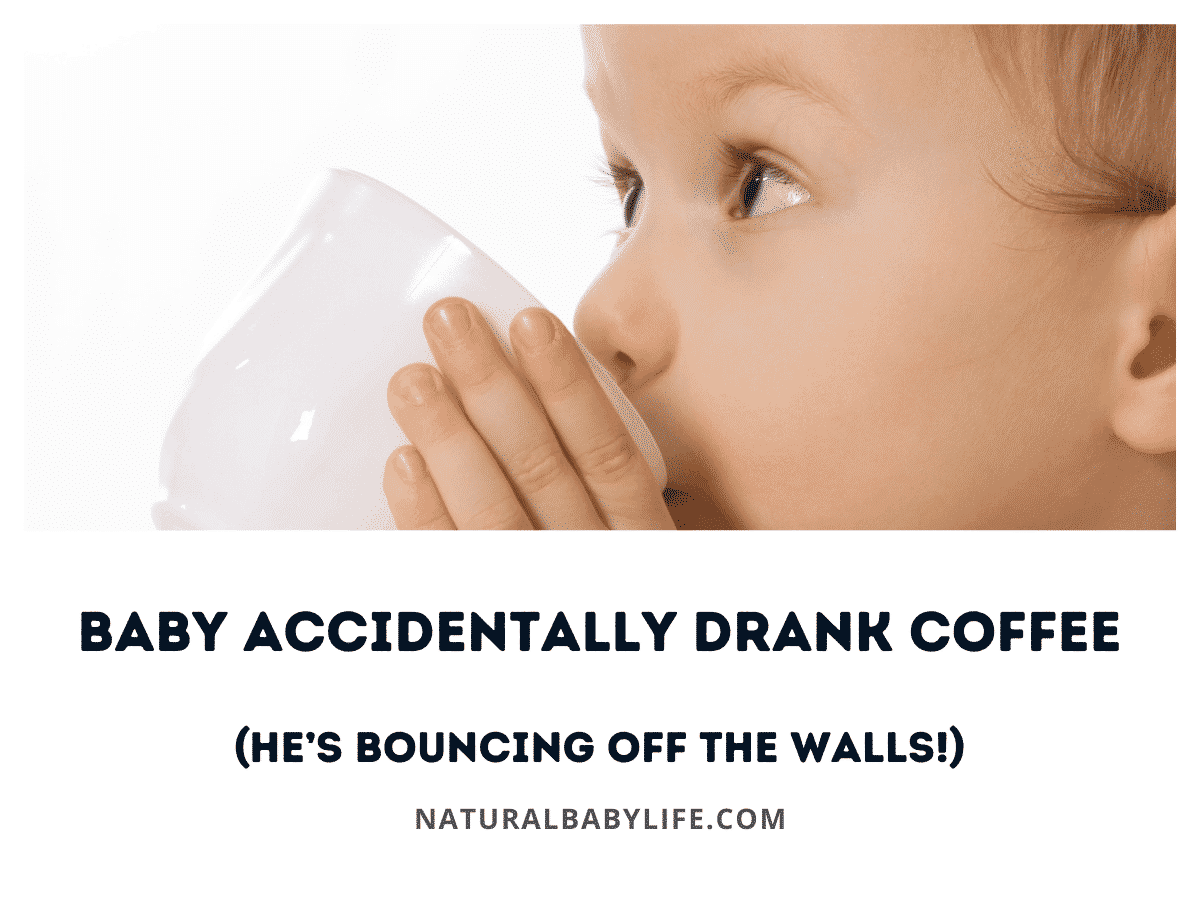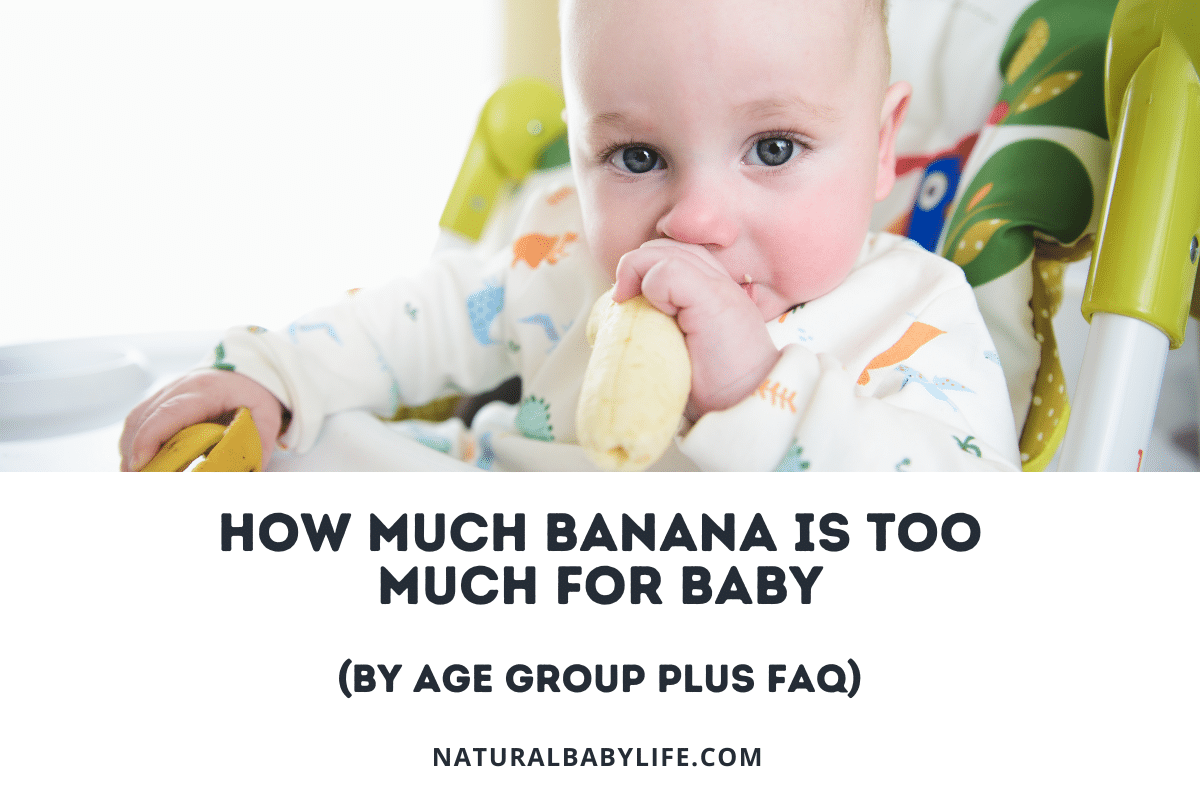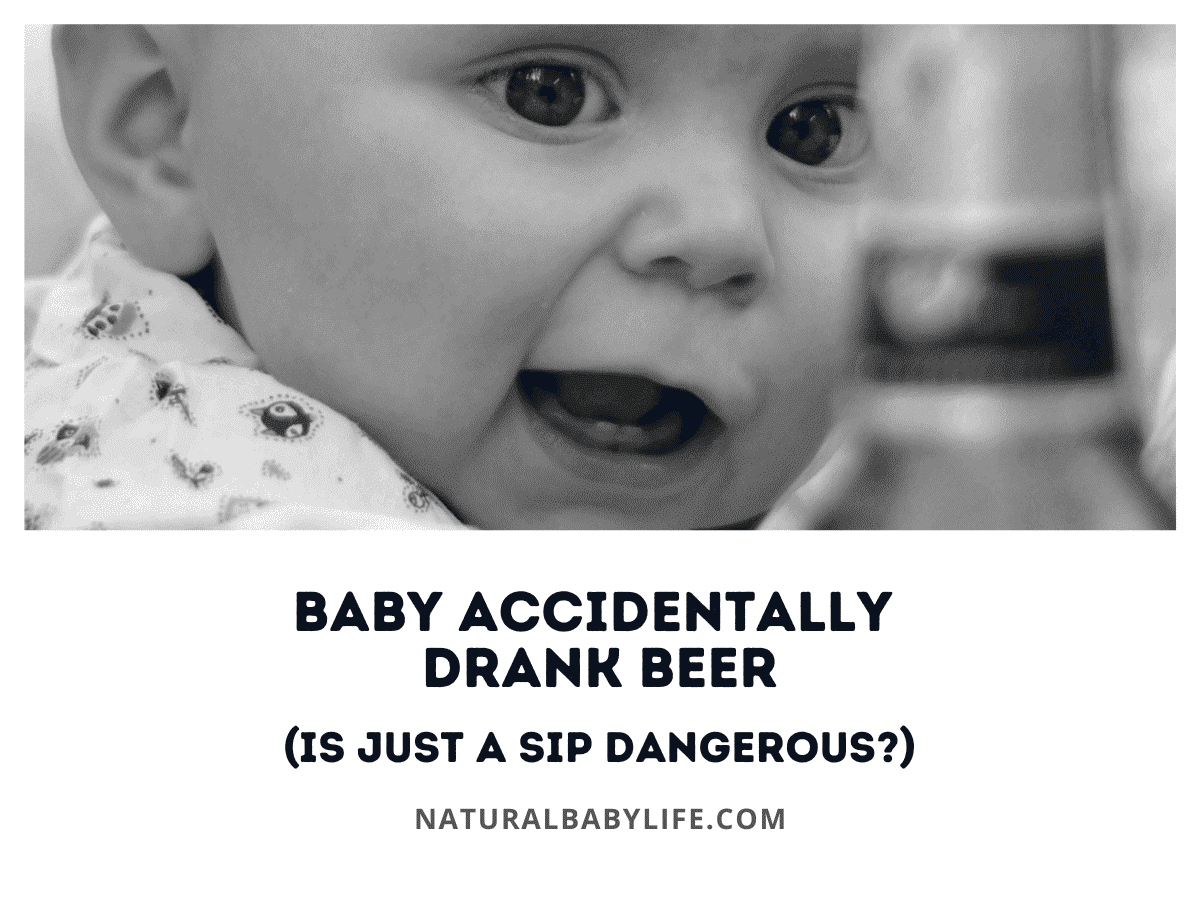Introducing your baby to table foods is an exciting milestone; however, you might not be as vigilant about the quality of the foods in your pantry as you were with their baby food. This can raise new challenges. For instance, what happens if your baby accidentally eats moldy bread?
Babies who eat moldy bread typically do not experience any adverse health effects; however, their developing immune systems may make them more vulnerable to molds, fungi, and other foodborne illnesses than most adults. If your baby ingests moldy bread – even if you do not think they consumed the mold itself -monitor them for signs of illness.
Continue reading to learn more about what to do if your baby accidentally ingests moldy bread and how to prevent bread from molding.
Table of Contents
What happens if my baby accidentally eats moldy bread
Ingesting moldy bread doesn’t usually result in illness. If your baby accidentally eats moldy bread, they might make a funny face and reject the “off-tasting” bread, or they might not even notice. Avoid eliciting a reaction from your child by acting panicked or disgusted. This might cause your child to feel sick even if they aren’t experiencing a reaction.
Though it is unlikely that your child will become ill. It is important to be aware of the potential health risks associated with eating moldy bread. Babies’ immune systems are still developing, making them more likely to become sick. If your baby has mold sensitivities or if their immune system is already compromised, monitor them closely.
If your baby is experiencing adverse effects from accidentally eating moldy bread, it is important to address their symptoms before they worsen. Symptoms such as vomiting and diarrhea can lead to dehydration, so make sure your little one stays hydrated. If your baby is experiencing difficulty breathing, seek medical attention. First aid or infant CPR may be needed in an emergency.
Why does bread mold
Mold is a type of microscopic fungi that breaks down organic material. Similar to the seeds of a plant, mold multiplies by producing tiny spores that can survive harsh environments and travel easily.
When a mold spore settles on a surface that provides moisture and nutrients, the spore will take root and multiply. Mold can grow on any organic material but is often seen on food. Bread is a common home for mold. Mold grows easily on bread because it contains an abundance of carbohydrates and just enough moisture.
There are several factors that dictate mold growth on bread:
- Bread type – As opposed to freshly baked bread, mass-produced bread typically contains preservatives that extend its shelf-life by making it less habitable for mold and bacteria. Bread that is high in sugar can grow mold more quickly. whereas sourdough bread is naturally less susceptible to mold growth.
- Moisture content – Mold grows best in moist conditions, so bread with a higher water content will grow mold more readily. Packaging and storage humidity can also play a role.
- Storage temperature – Though not all molds are alike, most molds grow best in room temperature or warm environments. Bread stored in cooler environments will have slower mold growth, and bread stored in the freezer should have little to none.
Why does mold make people sick?
Though mold is ever-present in nature, it can be a health hazard when inhaled, ingested, or touched.
The primary health concerns related to mold include allergic reactions, respiratory issues, and infection. An allergic reaction occurs when an individual’s immune system overreacts to a stimulant, such as mold spores. Allergic reactions can cause gastrointestinal issues and respiratory distress.
Mold allergies are common, and they are sometimes linked to asthma.
Exposure to mold spores, known as mycotoxins, can cause a variety of health issues. The symptoms and severity depend on the type of mold. Though diseases associated with mycotoxin are rare, they can be extremely dangerous.
Signs of a negative reaction to eating moldy bread include:
- Allergic reactions – Symptoms of an allergic reaction to mold may affect the respiratory system, gastrointestinal tract, or skin. Symptoms can range from mild to severe and can arise immediately or days after exposure.
- Asthma attacks – Sometimes seen in individuals who are susceptible to respiratory issues, asthma is often linked to allergies. Not all babies with asthma experience classic symptoms like wheezing, so any changes in behavior should be noted.
- Irritation to the eyes, skin, nose, and respiratory tract – Even people who are not at risk for asthma or allergic reaction can exhibit similar symptoms.
- Food poisoning – Foodborne illnesses (like Salmonella) are caused by eating food contaminated with an infectious organism. Foodborne illnesses are sometimes associated with ingesting moldy food because bacteria often grow where mold is present. Symptoms of foodborne illnesses often include vomiting and diarrhea.
- Mycotoxin poisoning – Fungal infection, or Mycotoxin poisoning, can occur when harmful toxins produced by mold come in contact with skin or are inhaled or ingested. Depending on the duration of exposure, the number of toxins, and susceptibility of the individual, these can be incredibly dangerous.
Can you get food poisoning from moldy bread?
If your baby is allergic to mold, they may experience an allergic reaction.
This can cause a variety of symptoms including vomiting, diarrhea, and respiratory distress. Mold allergies can also be linked to asthma attacks, which can be extremely dangerous, especially for babies.
Foodborne illnesses are also associated with moldy food, because bacteria is often present where mold is growing. Symptoms of a foodborne illness include vomiting and diarrhea, which can lead to dehydration.
It is possible to develop a fungal infection from mold; however, these infections are rare. Zygomycosis, or Murcormycosis, is a disease that can occur from exposure to Rhizopus stolonifer, which is a black mold sometimes found on bread. An infected individual may experience symptoms associated with the brain/sinuses, lungs, skin, or gastrointestinal tract, depending on the site of infection.
If your baby becomes sick, contact your pediatrician. If your baby is not getting sufficient oxygen, is dehydrated, or their symptoms are severe, seek medical attention immediately.
Is it dangerous if baby eats moldy bread?
It is unlikely that your baby will become sick after accidentally eating moldy bread; however, it can happen.
Here is a list of possible adverse effects to eating moldy bread and their symptoms:
- Allergic reaction
- Headache
- Facial swelling
- Rash
- Difficulty breathing
- Congestion
- Anaphylaxis
- Loss of consciousness
- Asthma attack
- Wheezing
- Heavy or labored breathing
- Quick, shallow breathing
- Frequent coughs
- Lethargy or fatigue
- Inability to eat or suck
- Turning blue or pale (commonly seen with face, lips, and fingers)
- Irritation to the eyes, skin, or respiratory system
- Itchy, watery eyes
- Rash
- Runny nose
- Cough
- Sore throat
- Foodborne illness
- Nausea and vomiting
- Diarrhea
- Stomach cramp
- Headache
- Fever
- Zygomycosis, or Murcormycosis
- Unilateral facial swelling
- Headache
- Congestion
- Skin lesions
- Fever
- Cough
- Chest pain or shortness of breath
- Stomach Pain
- Nausea and vomiting
- Gastrointestinal bleeding
If your baby is experiencing any of these symptoms, contact your pediatrician. For additional assistance, you can reach Poison Control at 1-800-222-1222.
Is bread okay if I just remove the moldy bits?
Many people try to salvage moldy food by cutting off the bad areas, but this strategy is not recommended for bread.
Since bread is soft and porous, there is no way to know how far the roots of the mold reach.
By contrast, firm vegetables, cured meats, and hard cheeses can still be eaten after the moldy portion has been removed.
What to do when baby eats moldy bread
If you suspect that your baby has eaten moldy bread, you want to start by taking away the bread, washing their hands and face, and getting them to fresh air. This will help prevent a reaction from worsening if they are sensitive to mold.
Dispose of the moldy bread in an outdoor garbage can, and remember to never smell food that you suspect is moldy.
Monitor your baby for signs that they are becoming sick. Keep in mind that symptoms may arise immediately or take a few days. Contact your pediatrician if your baby becomes ill.
For additional instructions, call Poison Control at 1-800-222-1222.
When to visit the doctor
If you find that your baby has ingested mold, it isn’t necessarily a cause for alarm.
Though most babies will exhibit no symptoms, you should be monitoring them closely. Babies with mold allergies, asthma, or a weakened immune system are more susceptible to illness.
If your baby gets sick after eating mold, contact your pediatrician. If your baby is having difficulty breathing, seek medical attention immediately.
Keeping bread from molding
The best way to avoid accidentally eating moldy bread or feeding it to your little one is to prevent your bread from molding.
Here are some ways to keep bread from molding before you have a chance to eat it:
- Breathable storage – Avoid condensation by storing your bread in a breathable paper bag or bread box rather than plastic.
- Temperature control – Store your bread in the refrigerator or in the freezer. Bread can maintain freshness in the freezer for months. Bread that was quickly frozen (at -18°C) after baking maintained the same softness after one year as 2-day old bread at 20°C.
- Use preservatives – Bread that has been mass-produced usually contains added preservatives that will increase its shelf life. If you prefer freshly baked bread, consider eating bread with natural preservatives such as sourdough bread.
- Basic is better – Avoid choosing bread with a high water content or with added fruits or nuts that may contribute extra moisture. The excess moisture can allow for more rapid mold growth.
- Cut as needed – Do not pre-slice your fresh bread. Mold spores are always in the air, so the more your bread is exposed, the quicker it will mold.

